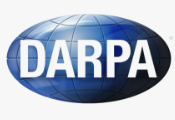Researchers Make Leap in Quantum Computing
Researchers Make Leap in Quantum Computing
a team of Harvard scientists has succeeded for the first time in trapping molecules to perform quantum operations. This feat was accomplished by using ultra-cold polar molecules as qubits, or the fundamental units of information that power the technology. The findings, recently published in the journal Nature, open new realms of possibility for harnessing the complexity of molecular structures for future applications.


























